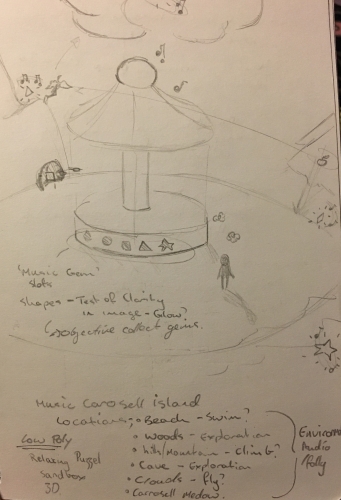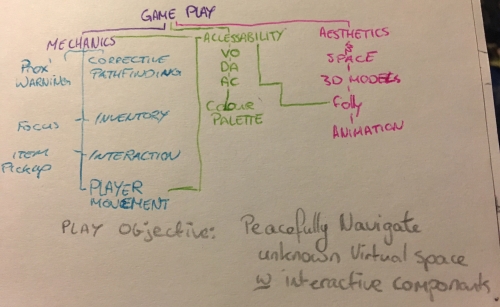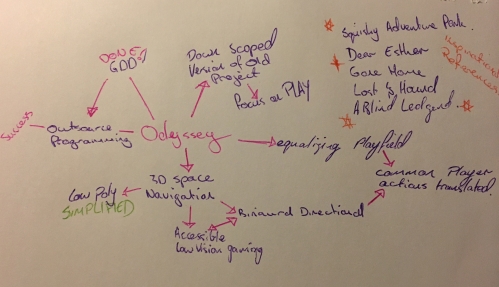
Reflection of Major Studio project, the changing of scope from Grandma's to Odyssey. Exploring accessible gameplay in a virtual 3D space.
Inquiry
Looking at the connection between audio and three-dimensional navigation, that leads to an enjoyable play experience for low vision and blind players.
How far can the combination of; audio cues, binaural sounds and visuals get us as players and videogame designers to an equal playing field in accessible play?
Related Practice
January 2018, I became inquisitive about accessible videogame design for low vision and blind player’s gameplay. referring to videogames such as; A Blind Legend, Papa Sangre, N64 Mario, Journey, Gone Home and The Witness to name a few, I went about exploring the different influences audio can make within a videogame environment. By discovering the power of binaural audio and seemingly simplistic audio cues I came to theorise that with the correct balance in auditory output to the player, visuals and interface layout; a player regardless of sight level should be able to pick up a controller and be immersed in an enjoyable play experience, without the frustration of being barred due to lack of accessible design. Alone, I began the development of an explorative roleplaying game, Grandma’s. The sheer scope and my personal lack in ability has seen this project be since down scoped to simple animated demos of what the potential of accessible videogame design holds for previous classes.
With the assistance of my friends, Daniel McAdam and Zac Brannelly in programming and with the assistance of a sound designer, we will produce a resolved interactive that explores the different limitations of audio cues binaural sounds when navigating unknown three-dimensional virtual spaces.
Lost and Hound, a game by Brian Fairbanks is a published example which was shown off at 2018 PAX that successfully demonstrates some of what I hope to achieve in my own project.
Significance
Successful exploration of this inquiry will lead to a) inclusive gameplay for a gamer demographic that has been left to create their own genre of gaming and b)to a broader understanding of game design practices for a wider game developer community that will also be academically documented. Documentation of such accessible design approaches or success do not currently exist in academia.
About This Work
By Maeskye Trigg
Email Maeskye Trigg
Published On: 30/07/2019


